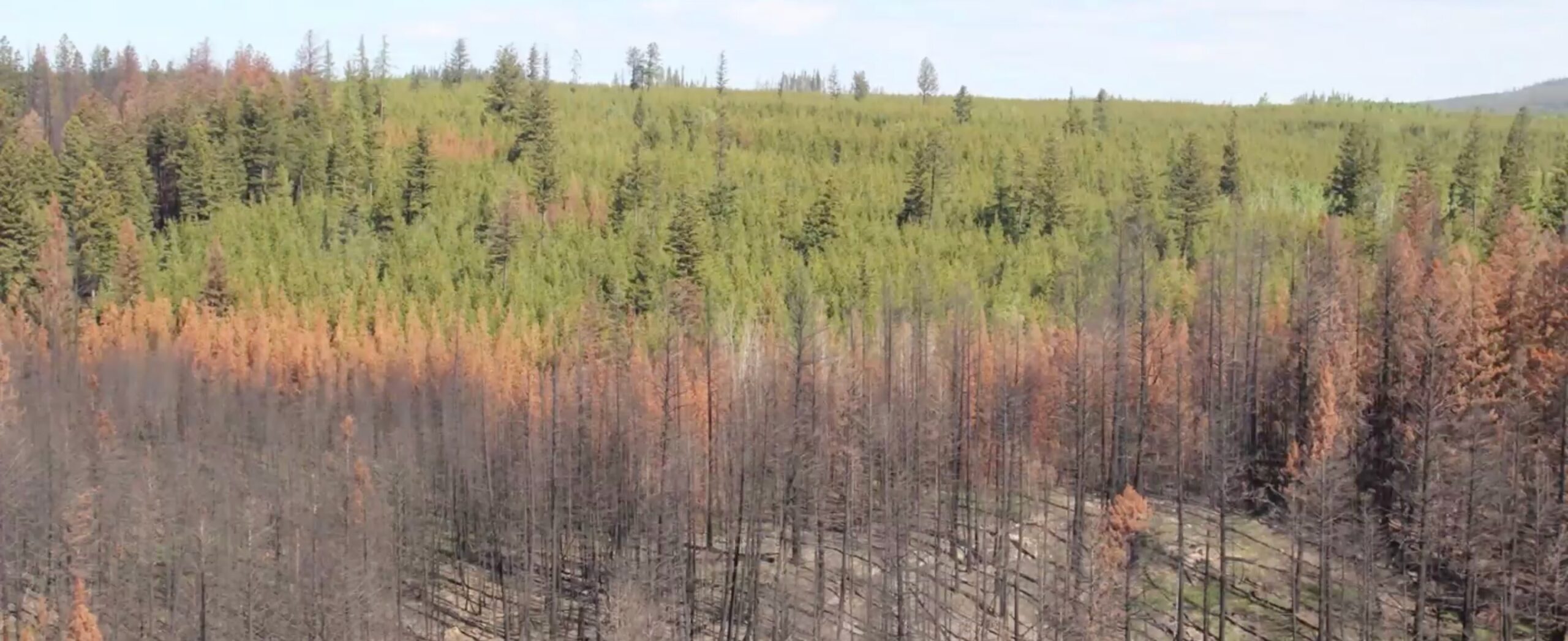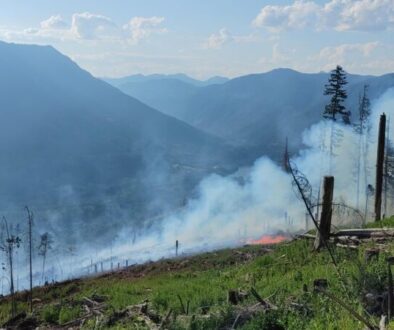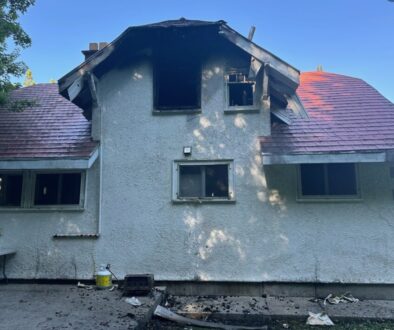Improving forest management will help reduce wildfires, retired foresters tell CSRD
Better forest management and changes to provincial government policy are key to reducing the frequency and intensity of wildfires.
This is according to retired foresters Archie MacDonald and Murray Wilson, who presented at the Columbia Shuswap Regional District regular board meeting on February 15.
The pair said they are speaking out due to their frustration over mis-information, and concerns about a lack of meaningful measures being taken by the BC government to combat wildfires. While encouraged by activities being done at the local government level, the two remain worried as 95 per cent of the province is crown land, with a vast majority of it falling under the jurisdiction of the provincial government.
“[I]f we cannot influence the government to start changing their ways, all that good work will be for naught and we will be continually faced with more and more wildfires mega fires as they’re now being called and the associated spoke that goes with it,” said MacDonald.
The fundamental objective, according to Wilson and MacDonald, is to reduce the amount of fuel on the forest floor, which will make for less intense fires that are easier to suppress.
“[…] “Unfortunately, we have a big issue today with our forests. They’re very old and very unhealthy. How did they get this way? Well, basically, we have become too good at suppressing wildfires over the last 100 to 150 years. As a result of this, this has allowed our forests to get much older and more and more fuel to be built up within the forests. As the forests older, they become much more susceptible to pest disease outbreaks and drought and consequently we have more fires,” said MacDonald. “If you look back at pictures from 100 years ago, we did have a lot of openings and the forests did not look the same as they do today. Unfortunate we’ve developed is ideal that we have to have dark green everywhere on the hillside.”
During a discussion period following the presentation, Revelstoke Mayor Gary Sulz weighed in, saying he is hearing the same message from forestry professionals he is speaking with.
“[Here] in Revelstoke, we have our own forest Corporation. We have our own tree farm license and we’re up against the problems with old growth forest, the deferrals and of course, protection of the caribou. And so in meeting with a member of one of our environmental groups in the past week, there’s this thought process that old growth forest is the epitome of what we need to achieve here in this province. … You know I’m hearing the same thing that you’re telling us, that we need to manage our forests,” said Sulz.
Wildfires were also a topic of discussion at the February 27 Revelstoke City Council meeting. At that meeting councillor Matt Cherry brought forward a notice of motion asking staff to provide a report with updates on wildfire resources, including the status of a BC Wildfire facility being built at the Revelstoke Airport.
The 2023 wildfire season was the most destructive in BC’s history, with more than 2.84 million hectares of forest and land burned and tens of thousands of people forced to evacuate. It was also an emotional year for BC’s wild land firefighters who lost six of its members including 19-year-old Devyn Gale of Revelstoke, who passed away while actioning a small fire near Hiren Creek.
More than one billion dollars was spent trying to suppress the wildfires in BC last year, but MacDonald said this doesn’t represent the true costs that come when you include property damage, deaths, lost business revenue, and mental health supports for people evacuating their homes or supporting others who where evacuated.




